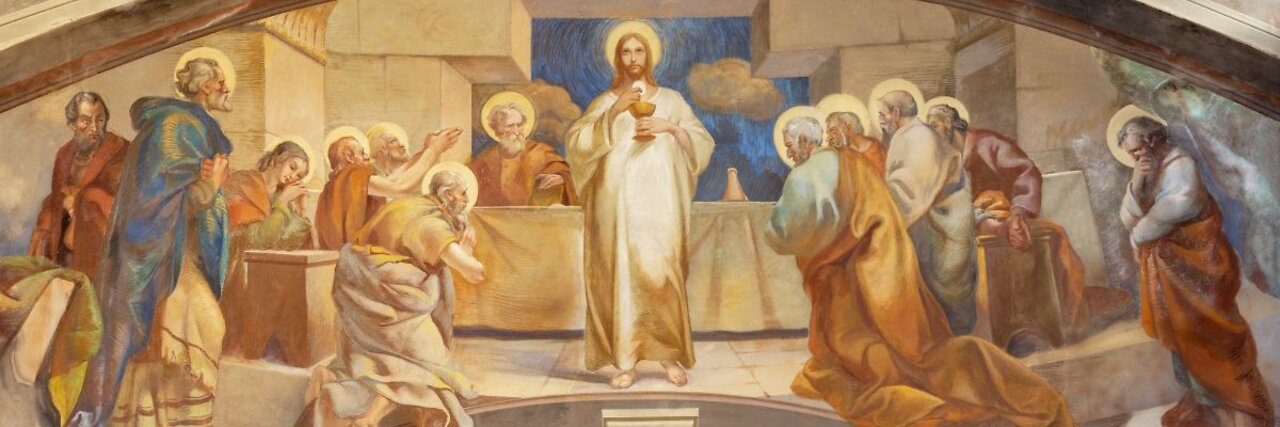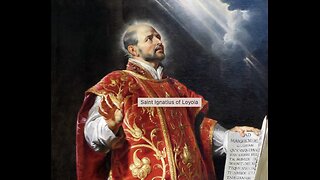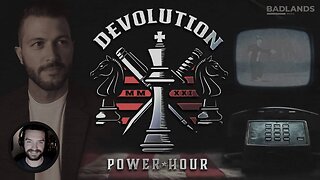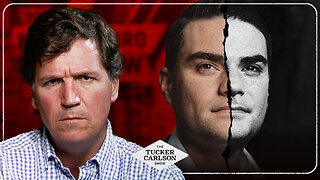Premium Only Content

Eucharist Pre-Constantine Era III
IV Ignatius of Antioch c. 35-107
Wrote 7 letters en route to martyrdom in ROME during reign of Trajan
Rome is undisputed center of Christianity, martyrdom of Peter & Paul. Alexandria, Antioch, and Constantinople were the other prominent communities.
Desire “bread of God, flesh of JC, seed of David and for drink His blood which is imperishable love”
- One Eucharist, one cup, one altar. Altar had a sacrificial meaning. (Philadelphians 4.1; also Ephesians 20.2).35 The repeated mention of an altar (θυσιαστήριον; Ephesians 5.2; Trallians 7.2; Magnesians 7.2) indicates a sacrificial understanding
- An event to be offered only in communion with the bishop and not a common meal. Note hierarchy already in place.
“Let that eucharist be considered valid that occurs under the bishop or the one to whom he entrusts it” (Smyrneans 8.1; also Ephesians 5.2-3; Trallians 7.2).”
Uncommon sacred meal, medicine brings immortality
Ignatius describes the Eucharist as “a medicine that brings immortality, an antidote that allows us not to die but to live at all times in Jesus Christ” (Ephesians 20); being “the flesh of our savior Jesus Christ, which suffered on behalf of our sins” (Smyrneans 7.1; cf. John 6:53-69).
Unites believers by their partaking (Smyrneans 8.1; Ephesians 20.2)
Earthy language of altar, moderns unbloody sacrifice, places of great beauty, profound beauty
Ignatius’ time understood bloody sacrifice. Understood cost. Different view of altar stone. Brethren turned to food in coliseum.
Far removed from act, and less thankful.
IV Didache (100) "The teaching of the Lord to the Gentiles (or Nations) by the twelve apostles".
, esp Chap 9, 10, 14 and 1 Cor connection, these 3 chapters may be older than document itself
- sacred ritual and meal
- benediction before bread and wine
- self-examination (confession of sins)
- need for baptism
- while it may be coupled to a meal, it is NOT open to all
- ecclesial unity
- thanksgiving to God through Jesus Christ
- Sacrificial character Chap 14
Naive concept not have formalized structure. Pagan world had rituals, Jewish religion highly ritualistic. Jesus & apostles had this education under Jewish patrimony. Foreign to Jewish or pagan mind to not have ritual.
-
 11:04
11:04
Fides et Ratio
1 year agoIgnatius’ Rules for Discernment Journey to God V
49 -
 2:29:10
2:29:10
Badlands Media
7 hours agoDevolution Power Hour Ep. 405
124K9 -
 2:55:16
2:55:16
TimcastIRL
5 hours agoNEW Epstein Emails Drop, Dems Claim TRUMP KNEW, Congress Forces Epstein Release Vote | Timcast IRL
240K99 -
 1:19:53
1:19:53
Barry Cunningham
4 hours agoBREAKING NEWS: PRESIDENT TRUMP RE-OPENS THE UNITED STATES GOVERNMENT!
23.1K7 -
 20:47
20:47
The White House
5 hours agoPresident Trump Signs Senate Amendment to H.R. 5371
26.1K29 -
 LIVE
LIVE
Drew Hernandez
21 hours agoNEW EPSTEIN EMAIL DROP FULLY POLITICIZED
1,169 watching -
 1:44:01
1:44:01
Tucker Carlson
4 hours agoTucker Carlson on the Israel First Meltdown and the Future of the America First Movement
37.7K340 -
 DVR
DVR
Alex Zedra
4 hours agoLIVE! Phasmaphobia New Map!
41.2K2 -
 2:16:06
2:16:06
Laura Loomer
6 hours agoEP155: Jihad Makes Its Move On The White House
37.7K47 -
 2:18:47
2:18:47
TheSaltyCracker
6 hours agoDem's Epstein Drop Backfires ReeEEStream 11-12-25
96.3K193